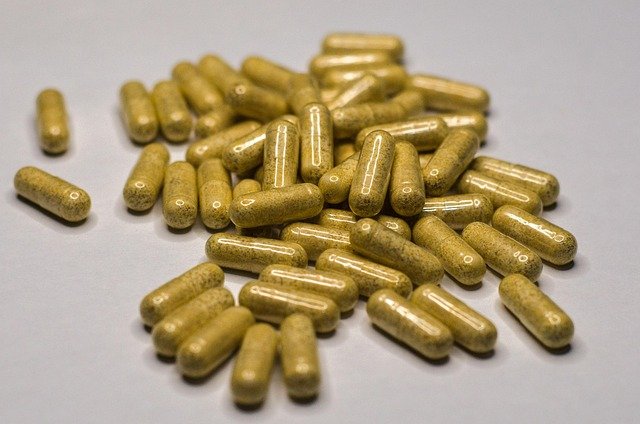A comprehensive hair loss management solution: safe and scientific treatment to help you regain your confidence.
Are you also troubled by hair loss? Hair loss is a significant issue for many people, with a variety of causes ranging from genetics to stress. Understanding the underlying factors helps in finding effective solutions, whether through a professional clinic offering advanced treatments or by trying natural remedies at home. With an increasing number of treatment options available, finding the right hair loss treatment can help people regain confidence and have healthier hair.

Hair loss is a widespread concern that transcends age, gender, and background. Whether experiencing gradual thinning or more noticeable shedding, understanding the mechanisms behind hair loss and the range of available solutions empowers individuals to take control of their hair health. Modern approaches combine medical treatments, nutritional support, and lifestyle modifications to create personalized management plans that address both symptoms and underlying causes.
How to Prevent Hair Loss?
Prevention strategies focus on maintaining scalp health and minimizing damage to hair follicles. Regular scalp massage improves blood circulation, delivering essential nutrients to hair roots. Avoiding excessive heat styling, tight hairstyles, and harsh chemical treatments reduces mechanical stress on hair strands. Maintaining a balanced diet rich in proteins, vitamins, and minerals supports healthy hair growth from within. Managing stress through exercise, meditation, or counseling helps regulate hormones that influence hair cycles. Protecting hair from environmental damage by wearing hats in strong sunlight and avoiding chlorinated water preserves hair strength. Early intervention at the first signs of thinning often yields better outcomes than waiting until significant loss has occurred.
Causes and Treatments for Hair Loss
Hair loss stems from various factors including genetics, hormonal changes, medical conditions, medications, and nutritional deficiencies. Androgenetic alopecia, the most common form, results from genetic predisposition and hormonal influences. Telogen effluvium causes temporary shedding following physical or emotional stress. Alopecia areata, an autoimmune condition, creates patchy hair loss. Thyroid disorders, iron deficiency, and certain medications can trigger hair thinning. Treatment approaches vary based on the underlying cause. Medical interventions include topical solutions, oral medications, and procedural options. Addressing nutritional deficiencies through dietary changes or supplementation supports hair regrowth. Managing underlying health conditions often resolves associated hair loss. Consulting healthcare professionals ensures accurate diagnosis and appropriate treatment selection tailored to individual circumstances.
The Relationship Between Hair Loss and Vitamins
Vitamins play crucial roles in maintaining healthy hair growth cycles. Biotin supports keratin production, the protein forming hair structure. Vitamin D influences hair follicle cycling and may help with certain types of hair loss. Vitamin E provides antioxidant protection against oxidative stress that damages hair follicles. B vitamins, particularly B12 and folate, support red blood cell formation, ensuring adequate oxygen delivery to scalp tissues. Vitamin A regulates sebum production, maintaining scalp moisture balance. However, excessive vitamin A intake can paradoxically cause hair loss. Iron, while technically a mineral, works alongside vitamins to prevent deficiency-related shedding. Blood tests can identify specific deficiencies requiring supplementation. A balanced diet typically provides adequate vitamins, but supplementation may benefit those with diagnosed deficiencies or increased nutritional needs.
Effective Medications for Treating Hair Loss
Several medications have demonstrated effectiveness in clinical trials for treating hair loss. Minoxidil, available as a topical solution or foam, stimulates hair follicles and extends the growth phase of hair cycles. Applied directly to the scalp, it suits both men and women experiencing pattern hair loss. Finasteride, an oral medication, blocks the conversion of testosterone to dihydrotestosterone, the hormone responsible for shrinking hair follicles in androgenetic alopecia. Prescribed primarily for men, it requires ongoing use to maintain results. Corticosteroid injections treat localized alopecia areata by suppressing immune system activity around affected follicles. Platelet-rich plasma therapy uses concentrated growth factors from the patient’s own blood to stimulate hair regrowth. Low-level laser therapy devices provide non-invasive treatment options. Medication effectiveness varies among individuals, and results typically require several months of consistent use. Healthcare providers can assess suitability and monitor for potential side effects.
Treatment Options and Considerations
Selecting appropriate hair loss treatments involves weighing effectiveness, cost, convenience, and potential side effects. Professional consultation provides personalized recommendations based on hair loss type, severity, and individual health factors. Some treatments require ongoing use to maintain benefits, while others offer more permanent solutions. Combining multiple approaches often yields better results than single interventions. Realistic expectations about timelines and outcomes help maintain motivation throughout the treatment process. Monitoring progress through photographs or professional assessments helps evaluate treatment effectiveness and adjust strategies as needed.
| Treatment Type | Description | Estimated Monthly Cost |
|---|---|---|
| Topical Solutions | Applied directly to scalp daily | £15-£40 |
| Oral Medications | Prescription tablets taken daily | £20-£60 |
| Professional Procedures | Clinical treatments performed by specialists | £200-£800 per session |
| Nutritional Supplements | Vitamins and minerals supporting hair health | £10-£35 |
| Laser Therapy Devices | At-home or clinic-based light treatments | £30-£100 (device purchase varies) |
Prices, rates, or cost estimates mentioned in this article are based on the latest available information but may change over time. Independent research is advised before making financial decisions.
Home and Natural Remedies for Hair Loss
Natural approaches complement medical treatments and suit those preferring gentler interventions. Scalp massage with essential oils like rosemary, peppermint, or lavender may improve circulation and provide aromatherapy benefits. Aloe vera soothes scalp irritation and creates an optimal environment for hair growth. Onion juice, despite its pungent odor, contains sulfur compounds that may stimulate follicles. Green tea, rich in antioxidants, can be applied topically or consumed as a beverage. Coconut oil provides deep conditioning and reduces protein loss from hair strands. Egg masks deliver protein and nutrients directly to hair. While scientific evidence for natural remedies varies in quality and quantity, many people report positive experiences. Patience is essential, as natural treatments typically require consistent application over several months. Combining home remedies with proven medical treatments may enhance overall results.
Managing hair loss effectively requires understanding its causes, exploring available treatments, and maintaining realistic expectations. Whether choosing medical interventions, nutritional support, or natural remedies, consistency and patience prove essential for achieving visible improvements. Professional guidance ensures safe, appropriate treatment selection tailored to individual needs and circumstances. With comprehensive strategies addressing both symptoms and underlying factors, regaining confidence in your appearance becomes an achievable goal.



